Lcd companion boards support (VKLCD50RTA & VKLCD70RT)
What is this ?
This is a demo program using Renesas RGA library & USB Camera to demonstrate VK-RZ/A1H's companion boards workability.
Supported companion Boards:
VKLCD50RTA
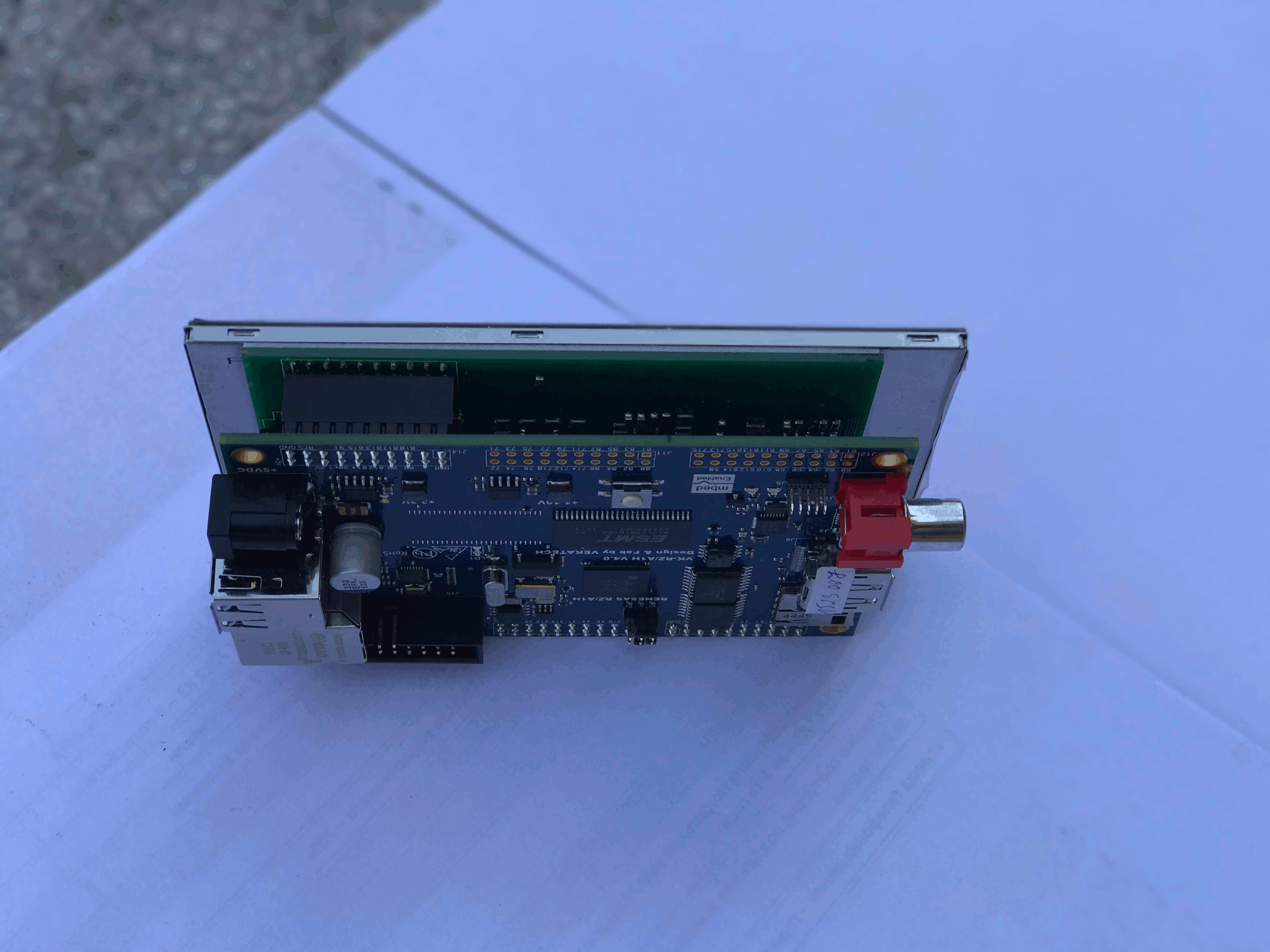
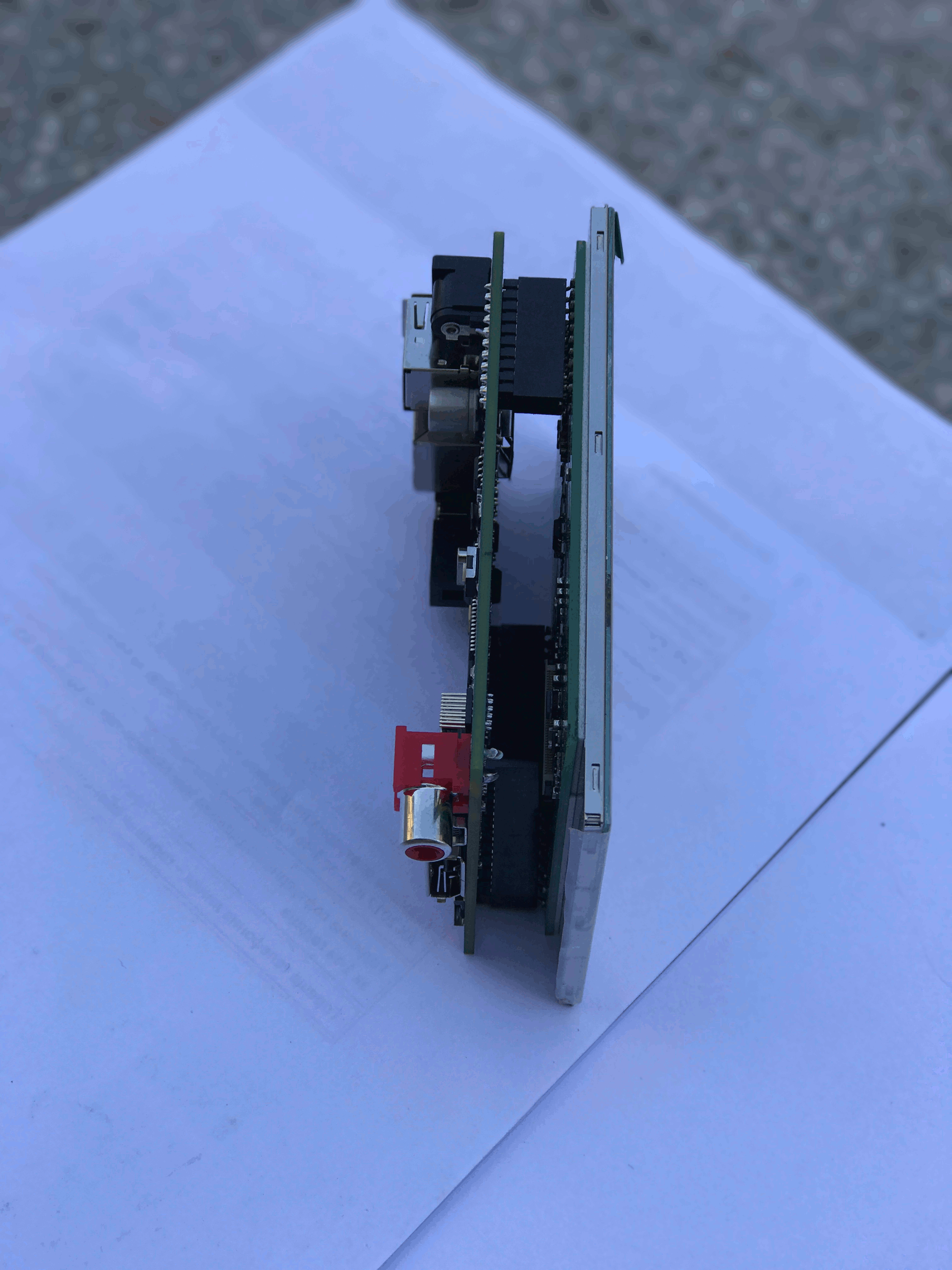
VKLCD70RT
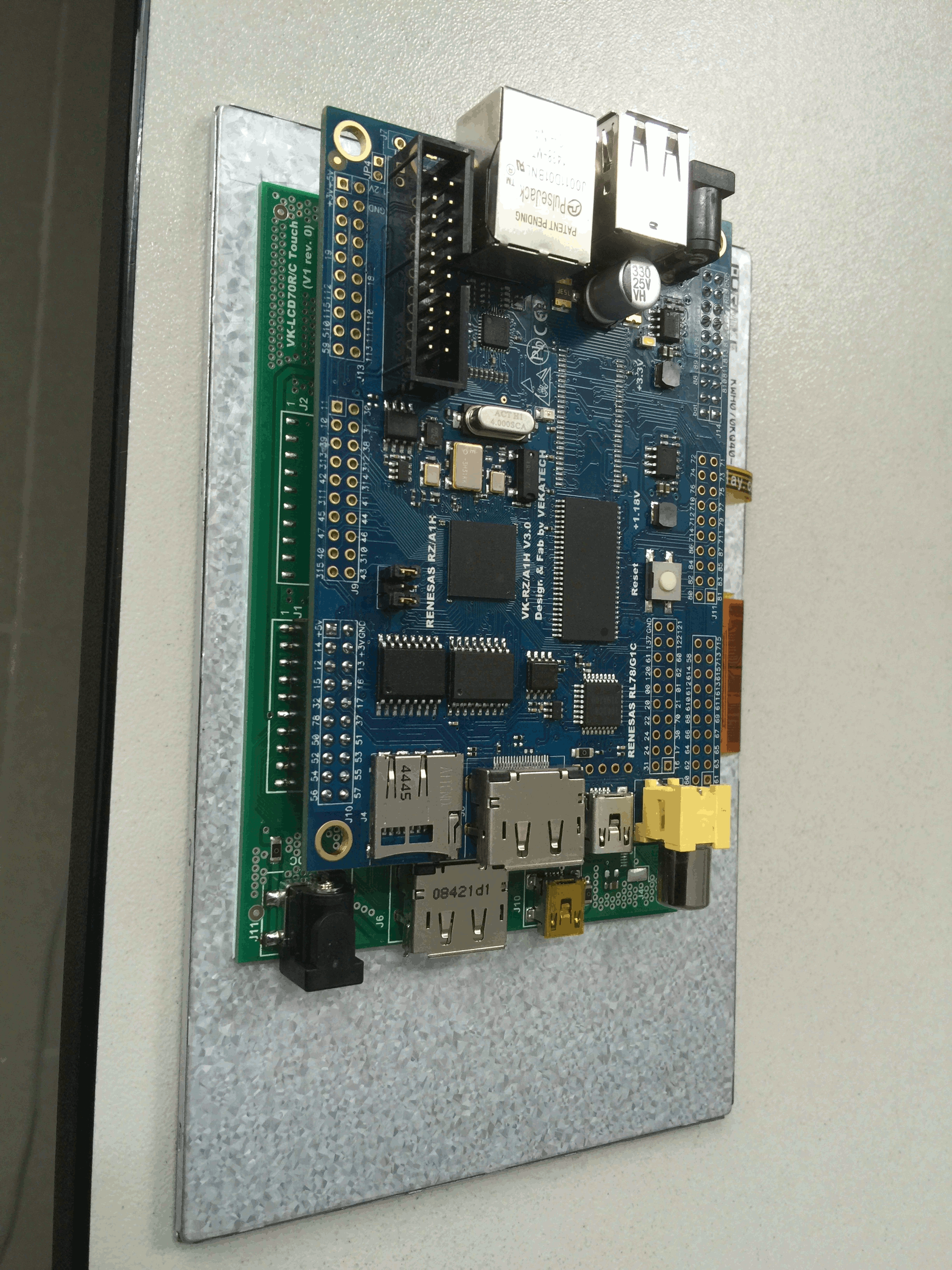
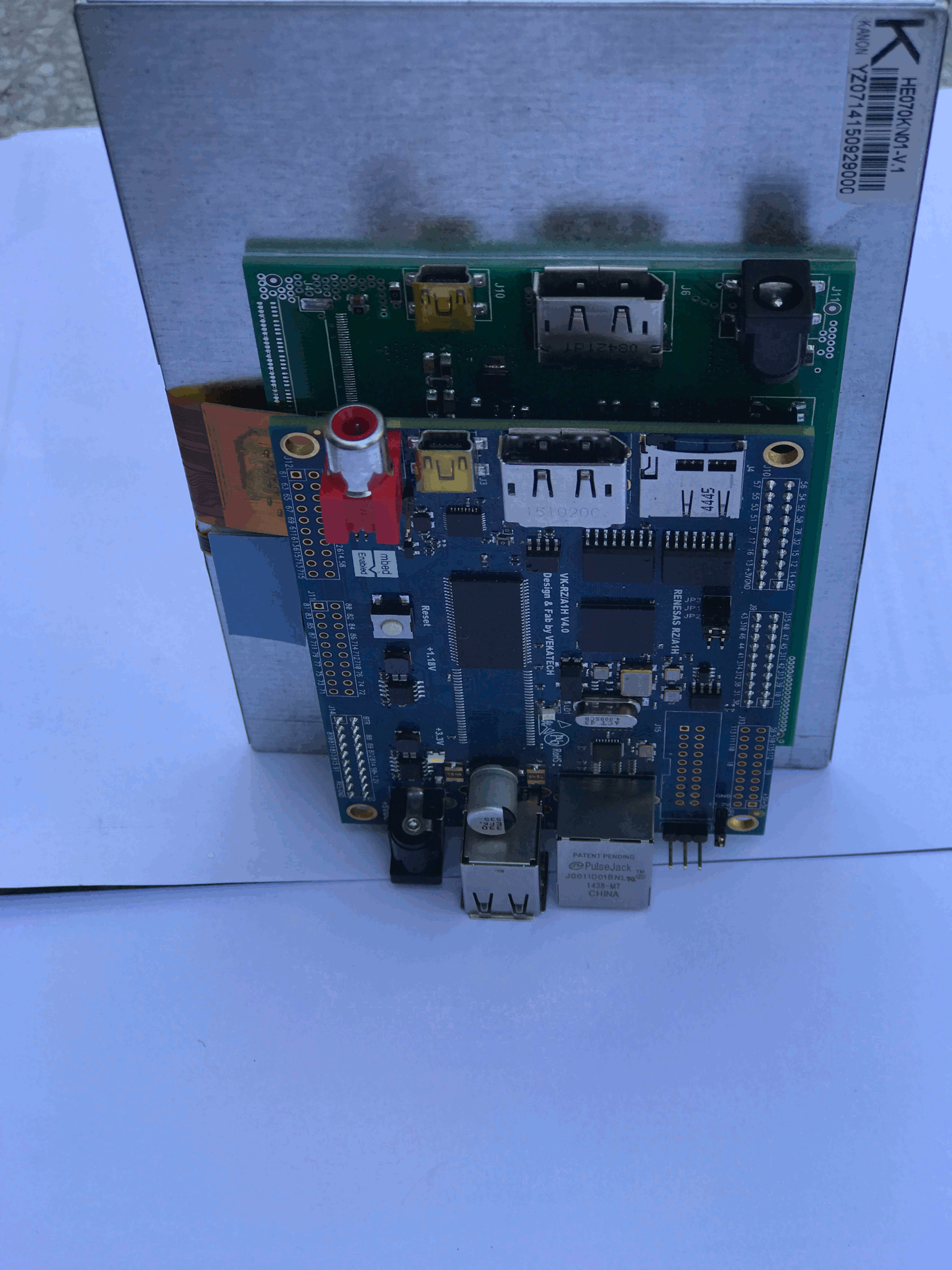
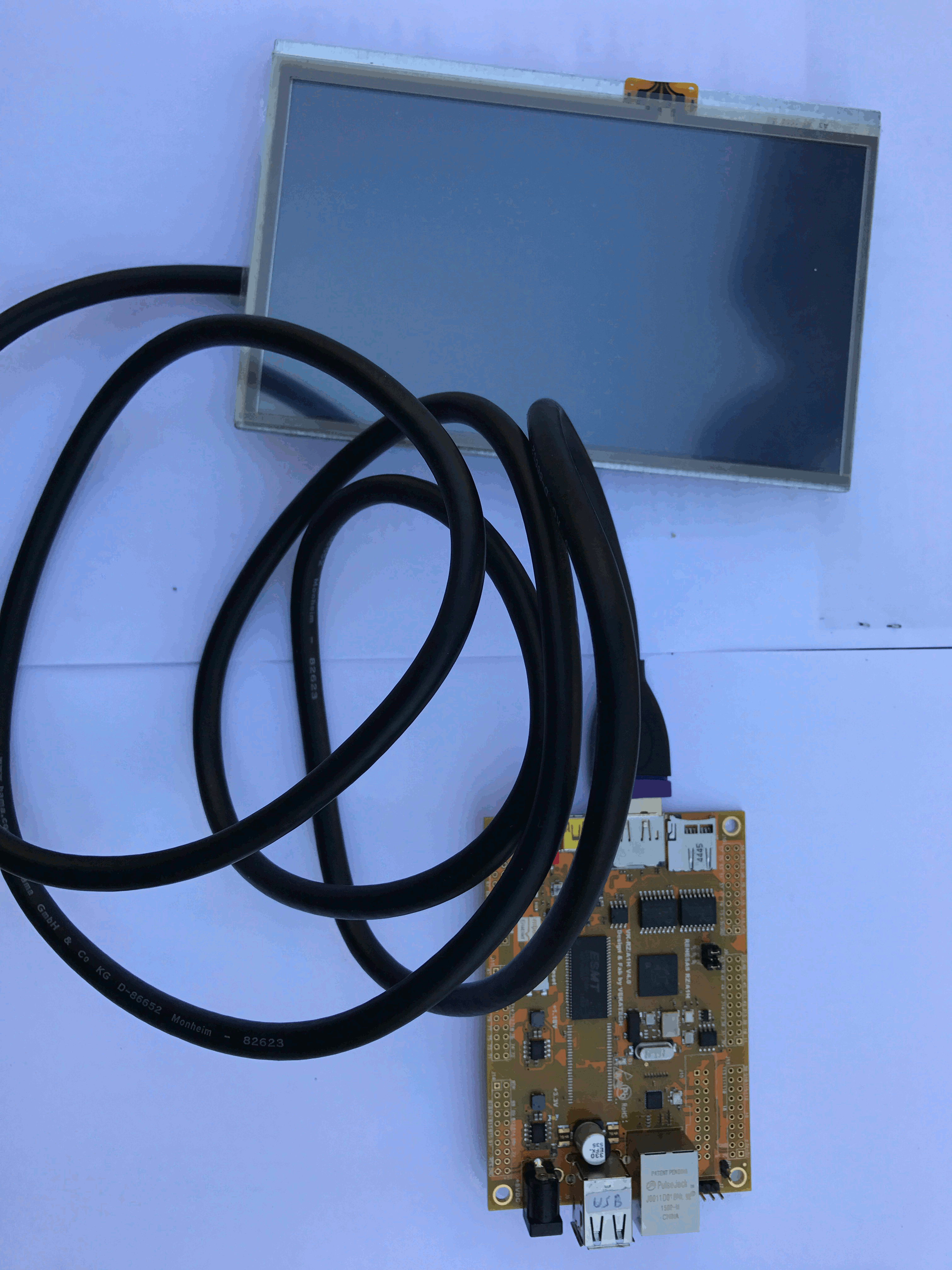
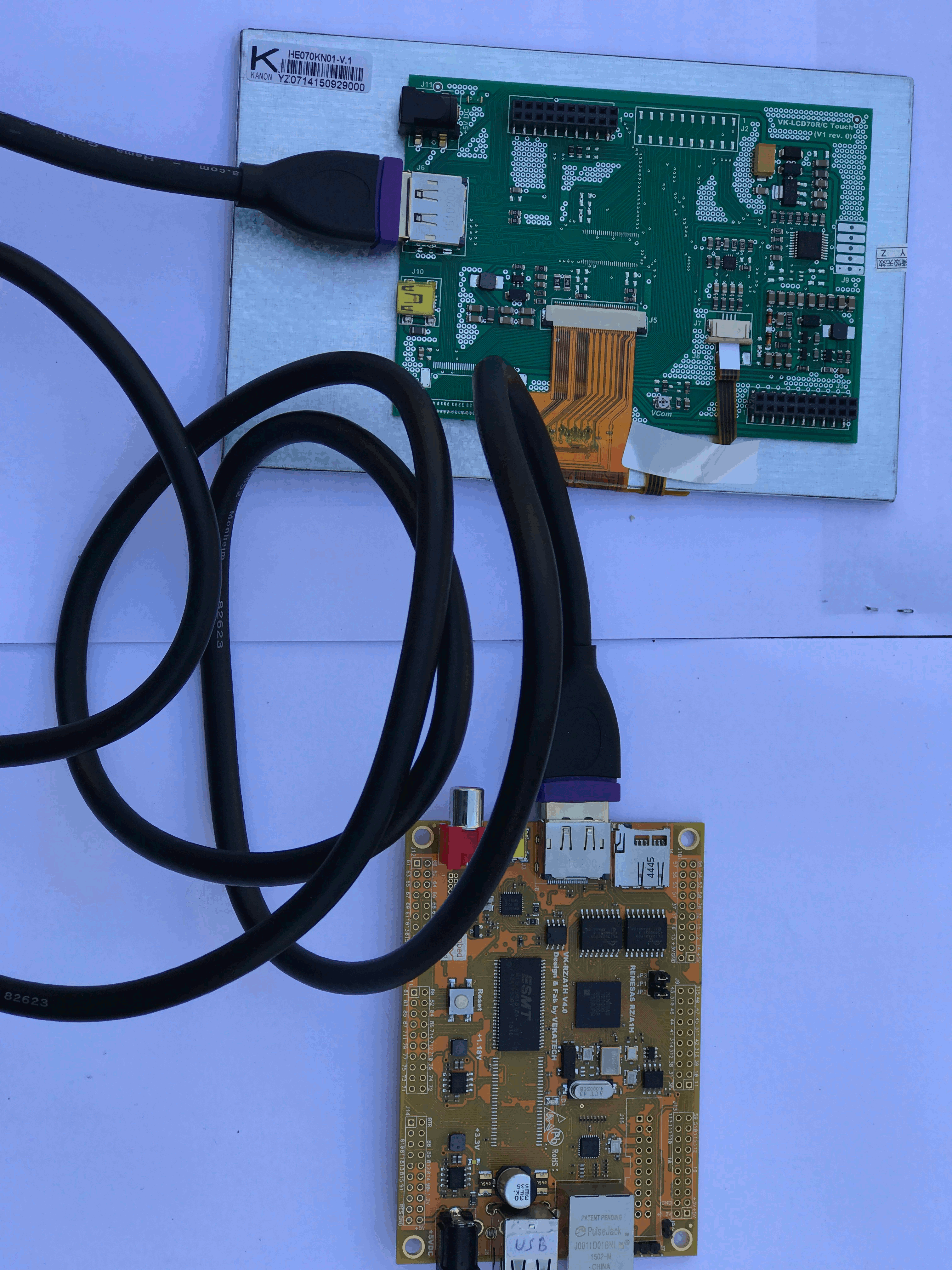
How to Configure ?
You can choose which display is installed by altering the lcd_panel.h file
Leave the active one & comment out the others:
#define LCD_VDC5_CH0_PANEL LCD_CH0_PANEL_VKLCD50RTA //#define LCD_VDC5_CH0_PANEL LCD_CH0_PANEL_VKLCD70RT
You can alter the whole demo with your pictures if you like:
How to compile ?
- The Demo can be compiled in 3 modes:
- I. Execution from the internal 10-MB on-chip SRAM.
- II. Execution from the on-board serial FALSH in dual (32-MB) mode.
- After import in the online compiler just leave only the VKRZA1H_DOUBLE.sct & delete all others linker files in the TOOLCHAIN_ARM_STD folder.
- Drag & drop the result binary in MBED disk, (previously inited in double flash mode)
- III. Execution from the on-board serial FALSH in single (16-MB) mode.
- After import in the online compiler just leave only the VKRZA1H_SINGLE.sct & delete all others linker files in the TOOLCHAIN_ARM_STD folder.
- Drag & drop the result binary in MBED disk, (previously inited in single flash mode )
Quick presentation:
Other demos ?
More demos you can find on our FTP
USB/USBHost/USBHALHost.h
- Committer:
- tvendov
- Date:
- 2017-02-16
- Revision:
- 0:6435b67ad23c
File content as of revision 0:6435b67ad23c:
/* mbed USBHost Library
* Copyright (c) 2006-2013 ARM Limited
*
* Licensed under the Apache License, Version 2.0 (the "License");
* you may not use this file except in compliance with the License.
* You may obtain a copy of the License at
*
* http://www.apache.org/licenses/LICENSE-2.0
*
* Unless required by applicable law or agreed to in writing, software
* distributed under the License is distributed on an "AS IS" BASIS,
* WITHOUT WARRANTIES OR CONDITIONS OF ANY KIND, either express or implied.
* See the License for the specific language governing permissions and
* limitations under the License.
*/
#ifndef USBHALHOST_H
#define USBHALHOST_H
#include "USBHostTypes.h"
#include "USBHostConf.h"
class USBHostHub;
/**
* USBHALHost class
*/
class USBHALHost {
protected:
/**
* Constructor
* init variables and memory where will be stored HCCA, ED and TD
*/
USBHALHost();
/**
* Initialize host controller. Enable USB interrupts. This part is not in the constructor because,
* this function calls a virtual method if a device is already connected
*/
void init();
/**
* reset the root hub
*/
void resetRootHub();
/**
* return the value contained in the control HEAD ED register
*
* @returns address of the control Head ED
*/
uint32_t controlHeadED();
/**
* return the value contained in the bulk HEAD ED register
*
* @returns address of the bulk head ED
*/
uint32_t bulkHeadED();
/**
* return the value of the head interrupt ED contained in the HCCA
*
* @returns address of the head interrupt ED contained in the HCCA
*/
uint32_t interruptHeadED();
/**
* Update the head ED for control transfers
*/
void updateControlHeadED(uint32_t addr);
/**
* Update the head ED for bulk transfers
*/
void updateBulkHeadED(uint32_t addr);
/**
* Update the head ED for interrupt transfers
*/
void updateInterruptHeadED(uint32_t addr);
/**
* Enable List for the specified endpoint type
*
* @param type enable the list of ENDPOINT_TYPE type
*/
void enableList(ENDPOINT_TYPE type);
/**
* Disable List for the specified endpoint type
*
* @param type disable the list of ENDPOINT_TYPE type
*/
bool disableList(ENDPOINT_TYPE type);
/**
* Virtual method called when a device has been connected
*
* @param hub hub number of the device
* @param port port number of the device
* @param lowSpeed 1 if low speed, 0 otherwise
* @param hub_parent reference to the hub where the device is connected (NULL if the hub parent is the root hub)
*/
virtual void deviceConnected(int hub, int port, bool lowSpeed, USBHostHub * hub_parent = NULL) = 0;
/**
* Virtual method called when a device has been disconnected
*
* @param hub hub number of the device
* @param port port number of the device
* @param hub_parent reference to the hub where the device is connected (NULL if the hub parent is the root hub)
* @param addr list of the TDs which have been completed to dequeue freed TDs
*/
virtual void deviceDisconnected(int hub, int port, USBHostHub * hub_parent, volatile uint32_t addr) = 0;
/**
* Virtual method called when a transfer has been completed
*
* @param addr list of the TDs which have been completed
*/
virtual void transferCompleted(volatile uint32_t addr) = 0;
/**
* Find a memory section for a new ED
*
* @returns the address of the new ED
*/
volatile uint8_t * getED();
/**
* Find a memory section for a new TD
*
* @returns the address of the new TD
*/
volatile uint8_t * getTD();
#if(1) /* Isochronous */
bool isTD(volatile uint8_t* td);
#endif
/**
* Release a previous memory section reserved for an ED
*
* @param ed address of the ED
*/
void freeED(volatile uint8_t * ed);
/**
* Release a previous memory section reserved for an TD
*
* @param td address of the TD
*/
void freeTD(volatile uint8_t * td);
private:
static void _usbisr(void);
void UsbIrqhandler();
void memInit();
HCCA volatile * usb_hcca; //256 bytes aligned
uint8_t volatile * usb_edBuf; //4 bytes aligned
uint8_t volatile * usb_tdBuf; //4 bytes aligned
static USBHALHost * instHost;
bool volatile edBufAlloc[MAX_ENDPOINT];
bool volatile tdBufAlloc[MAX_TD];
};
#endif